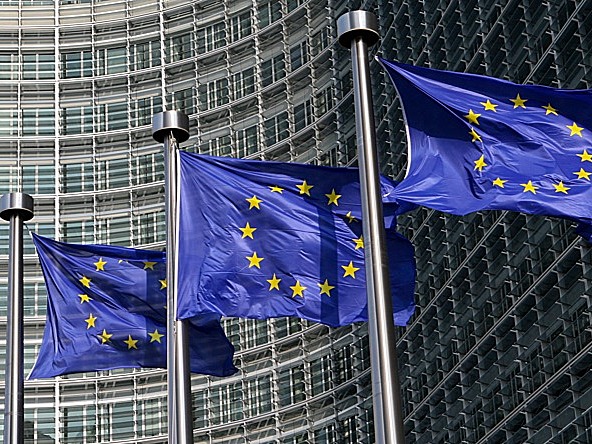European Parliament passes AI regulation

The European parliament approved rules that aim to promote the uptake of human-centric and trustworthy AI and protect health, safety, fundamental rights and democracy.
If brought into law, the rules would include a complete ban of the use of AI for biometric surveillance; emotion recognition systems in law enforcement, border management, the workplace, and educational institutions; and predictive policing.
Applications of AI classified as high-risk by the regulation will include systems that pose significant harm to people’s health, safety, fundamental rights or the environment.
AI systems used to influence voters and the outcome of elections and in recommender systems used by social media platforms (with over 45 million users) have also been added to the high-risk list.
The law would mean that generative AI systems based on models such as ChatGPT would have to comply with transparency requirements, such as disclosing whether content was generated by AI and whether images are deep-fakes.
Providers of these systems would also need to make publicly available detailed summaries of the copyrighted data used to train them.
Members of the European Parliament (MEPs) added exemptions for research activities and AI components provided under open-source licenses. The regulation promotes the use of ‘regulatory sandboxes', established by public authorities, to test AI before it is deployed.
The vote on Wednesday ( 14th June) was 499 votes in favour and 28 against. There were 93 abstentions.
MEPs will now speak with EU member countries about the final shape of the law before it becomes legislation.
Brando Benifei, co-rapporteur, said: “While big tech companies are sounding the alarm over their own creations, Europe has gone ahead and proposed a concrete response to the risks AI is starting to pose. We want AI’s positive potential for creativity and productivity to be harnessed but we will also fight to protect our position and counter dangers to our democracies and freedoms.”
Co-rapporteur Dragos Tudorache added: “The AI Act will set the tone worldwide in the development and governance of artificial intelligence, ensuring that this technology, set to radically transform our societies through the massive benefits it can offer, evolves and is used in accordance with the European values of democracy, fundamental rights, and the rule of law.”

We hope you enjoyed this article.
Research Live is published by MRS.
The Market Research Society (MRS) exists to promote and protect the research sector, showcasing how research delivers impact for businesses and government.
Members of MRS enjoy many benefits including tailoured policy guidance, discounts on training and conferences, and access to member-only content.
For example, there's an archive of winning case studies from over a decade of MRS Awards.
Find out more about the benefits of joining MRS here.














0 Comments